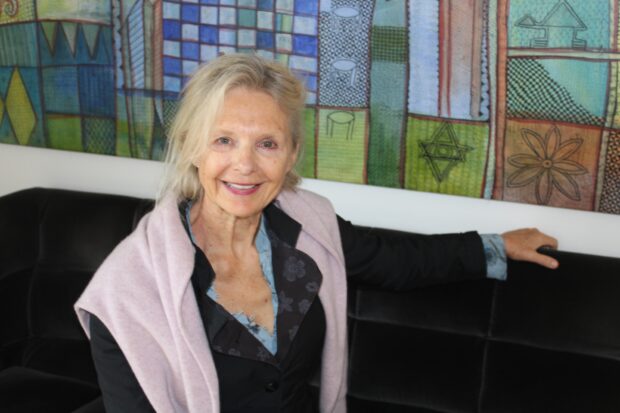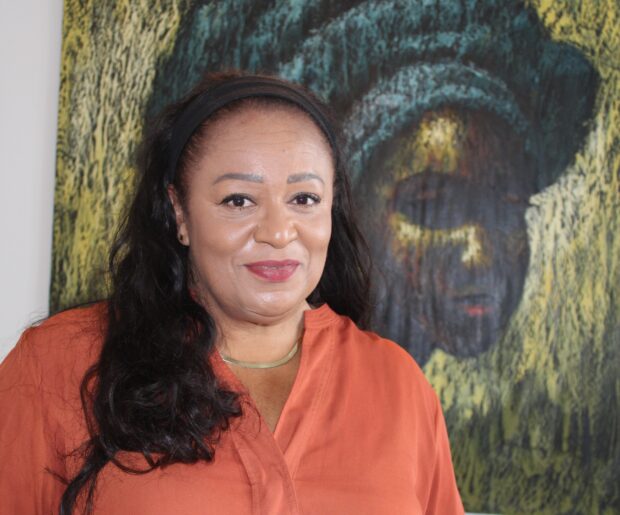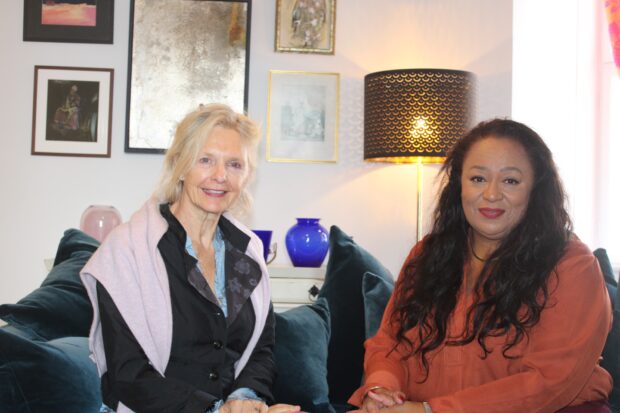For expat couples, the challenges of starting a new life together in Denmark can put pressure on relationships.
A trailing spouse may feel frustrated trying to enter the job market. A non-Danish partner might be stressed about visa requirements, struggling to find friends among introverted Danes or feel lonely at family events when everyone speaks Danish.
Leading Danish psychologist Jette Simon and therapist Vibeke Hartkorn have joined forces to help couples process their emotions, understand triggers and navigate challenges together.
Ms Simon – who hails from west Jutland and has worked as a therapist for 40 years – knows first-hand the vulnerability of moving to a new country and culture. She married an American man and moved to Washington DC in 1990. She said moving her life back to Denmark decades later, after her husband died, was also a huge adjustment.

“I looked at myself as a strong independent woman. [In the US] I didn’t know the system… I felt like a child. I didn’t know how the post office worked. I felt this insecurity and when I felt insecure, I didn’t like it. Instead of asking for help, I became critical of America, and you know the dance of ‘Denmark is better’. Definitely not helpful in my marriage,” Ms Simon said.
Experts believe it takes seven years to move into a new culture, she said.
“In that new context [in the US], I really wasn’t good at saying ‘I love you. This really has nothing to do with you, I’m just caught in some [insecurities].’ Instead, I sent out signals – ‘You better fix this because otherwise, I’m going back to Denmark,’” the author and podcaster said.
She said it can be a game changer to say: “I’m so scared, this happened.” And then your partner says: “Tell me about it, I get that, it’s hard, but you’re not alone anymore.”
“The main cause is feeling alone and isolated,” Ms Simon said.
Ms Hartkorn who grew up in northern Jutland, the daughter of a Danish mother and a Nigerian father, said that the “feeling of not being welcomed in a country or culture” can be overpowering. She noted it can also be difficult for the Danish partner or the working spouse to see their loved one so miserable.

“A man who feels like he can’t protect or make his partner happy feels so powerless,” she said.
Left unchecked intense feelings of powerlessness can sometimes prompt another relocation.
“I had a couple – he brought his wife from Brazil and… she comes here and has no work, and she begins to feel more needy of his attention and when he sees that she is so unhappy, it’s such a trigger for him, he gets scared… he shuts down which raises her fears,” Ms Simon said, adding that eventually they left Denmark.
Reconnecting
Hartkorn and Simon’s online course, Great Relations, available in English and Danish, is aimed at couples at all stages of relationships – from decades of marriage to those seeking to overcome early niggles.
“It’s not about solving problems but helping couples become a team around life’s difficulties, life’s struggles,” Ms Simon said.
The course uses principles of emotion-focused therapy, which Ms Simon introduced to Denmark, to help couples reconnect.
Couples learn how to process their emotions and positively express their needs, there is also an emphasis on acknowledging difficult circumstances underpinning behaviour.
“In a relationship, there are a lot of landmines, and you don’t know when you’re about to step on your partner’s landmine,” Ms Simon said.
“There really are no bad guys [in the relationship], but there are patterns we get caught in. It’s the pattern that’s the problem.”
For example, a simple oversight like forgetting to buy groceries could activate a partner’s stories of rejection from past relationships, Ms Simon noted, resulting in them shutting down or turning away.
“That turning away can activate the other partner’s deeper pain or abandonment or loneliness and then they respond [by] pursuing and in that moment, it doesn’t work,” she said.
“It’s about understanding the more I do that, the more you do this.”
Nobody is perfect
Sometimes women, who feel like they aren’t being heard, can be highly critical of their partners, Ms Hartkorn noted, adding that this wasn’t necessarily effective feedback.
“A lot of words, a lot of criticism… it’s word salad, it is too much,” Ms Hartkorn said.
“We’re helping couples talk from a softer place,” Ms Simon said.
Sometimes women go into therapy with an attitude that: “If he can just be fixed, then everything will be all right because I’m OK. I’m doing everything right,” Ms Hartkorn said.
“Then they find out that no this is something we do together.”
There is sometimes an unrealistic expectation that partners should be mind readers, the therapists said.
“There are so many things that we don’t express, there is so much going on inside for each partner,” Ms Hartkorn said.
“Men, they like to take action, they’re like: ‘Tell me what to do’… And we, as women are like, well, ‘You gotta find out yourself.’”

Both therapists, who have navigated the complexities of relationships and experienced divorce, say they use emotion-focused therapy techniques almost daily.
Ms Hartkorn – a former DR television news presenter turned communications consultant and therapist – has a home office and learned she shouldn’t talk to her second husband in the first 20-30 minutes when he gets home from work because he needs a small window to unwind.
Her desperate need for conversation felt like a full-frontal attack as he walked in the front door, she said jokingly.
“I just leave him alone, seriously I’m like ‘Hej, hej, do you want coffee, tea or a soda?’ That’s all… and then I leave him be,” she said.
“Then he’ll be ready to connect and say: ‘Hey, how was your day? Do you need help with this?”
Ms Simon said it can be powerful to take a step back from a partner’s comment that has irked you and try to understand the intention before reacting.
“This morning, my partner, he said to me: ‘I think you work too much,’ and that triggered me, it felt like criticism,” she said.
“With a little space of awareness, I could say ‘Oh that’s kind of hard to hear’… and he said, ‘I’m just trying to take care of you.’”















